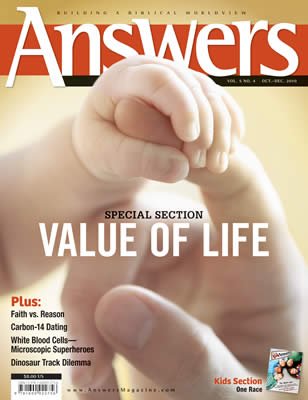Are You Teaching Discernment?
It’s not enough to teach students facts or good argumentation techniques. Christian young people need discernment. Discernment involves making careful distinctions between truth and error. As Paul says, “Test all things; hold fast what is good. Abstain from every form of evil” (1 Thessalonians 5:21–22).
Detecting a spiritual counterfeit requires that Christians first master the truth. God’s Word is truth, so the key is to increase our knowledge of God’s Word. Just as a bank teller learns to spot bad currency by handling lots of good currency, so a Christian learns to spot bad teaching by spending years working with biblical truth.
Paul said it another way in Philippians 1:9–10: “This I pray, that your love may abound still more and more in knowledge and all discernment, that you may approve the things that are excellent, that you may be sincere and without offense till the day of Christ.” The New Testament writers repeatedly warned that a lack of discernment would allow false teachers to come in and destroy sound doctrine (Jude 4).
So with every fact, every verse, and every argument that you discuss in class, are you consciously trying to build discernment? It won’t happen by accident!
Answers Magazine
October – December 2010
Human life is sacred, from fertilization until the day we die. This issue focuses on a creation-based understanding of the sanctity of life and mankind’s violation of the Creator’s clear directives.
Browse IssueRecommended Resources

Answers in Genesis is an apologetics ministry, dedicated to helping Christians defend their faith and proclaim the good news of Jesus Christ.
- Customer Service 800.778.3390
- Available Monday–Friday | 9 AM–5 PM ET
- © 2026 Answers in Genesis




